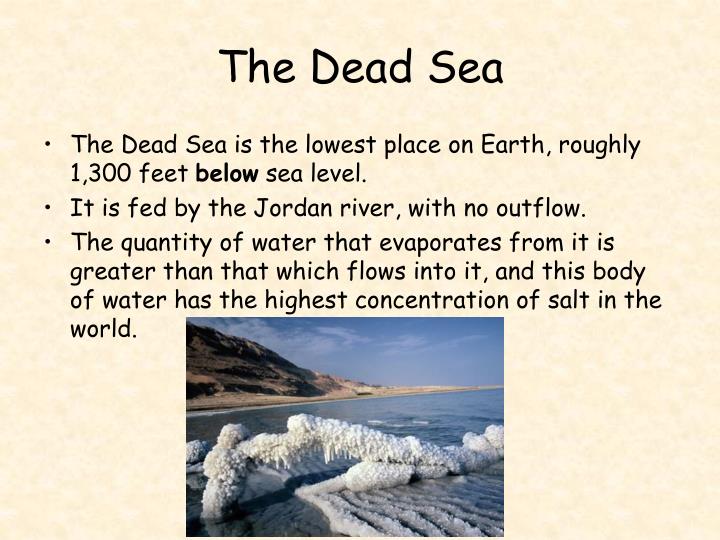The dead sea is sinking an average of 1 meter per year and is already 429 meters below sea level

The Dead Sea: A Fascinating Natural Wonder

The Dead Sea is a mesmerizing body of water located between Jordan to the east and Israel to the west. It is renowned for its impressive geological features and has captured the imagination of travelers and scientists alike. One astounding fact about the Dead Sea is that it is sinking at an average rate of 1 meter per year, making it one of the most intriguing natural phenomena on our planet.
This captivating natural wonder, the Dead Sea, is already situated 429 meters below sea level, making it the lowest point on Earth. It possesses an abundance of minerals, salts, and other chemical compounds that cannot be found in any other body of water. In fact, it is so rich in salts that a person can effortlessly float on its surface due to the high salt content.

The sinking of the Dead Sea is primarily attributed to anthropogenic activities that have caused water diversion from the Jordan River, its primary source. Over the years, extensive water extraction for agricultural and industrial purposes has significantly contributed to the shrinking of the sea. Consequently, this has led to the formation of countless sinkholes along the shoreline, posing risks to the surrounding ecosystems, infrastructure, and local communities.
The environmental impact of the Dead Sea’s sinking is extensive. The loss of water mass and increased salinity levels have disrupted the delicate balance of the ecosystem. The shrinking of the sea has affected the habitats of numerous species that rely on the unique conditions offered by the Dead Sea. This has led to the decline and even disappearance of certain species, further emphasizing the need for conservation efforts.
Tourism is one of the key industries that thrives alongside the Dead Sea, drawing visitors from all over the world. The exceptional healing properties of the sea’s minerals and mud have made it a popular destination for wellness and spa treatments. However, the sinking of the Dead Sea poses a threat to this economic sector as well. Efforts are being made to address the challenges faced by this wonder of nature and preserve its allure for future generations to cherish.
In conclusion, the Dead Sea is an extraordinary marvel that continues to captivate enthusiasts with its unique qualities and fascinating history. The sinking of the Dead Sea at an average rate of 1 meter per year, combined with its already astonishing depth of 429 meters below sea level, highlights the urgency to protect and conserve this precious natural site. By shedding light on its ecological significance and advocating sustainable practices, we can strive to safeguard this remarkable heritage for years to come.
Source: Travel + Leisure
Tags
Share
Related Posts
Quick Links
Legal Stuff

